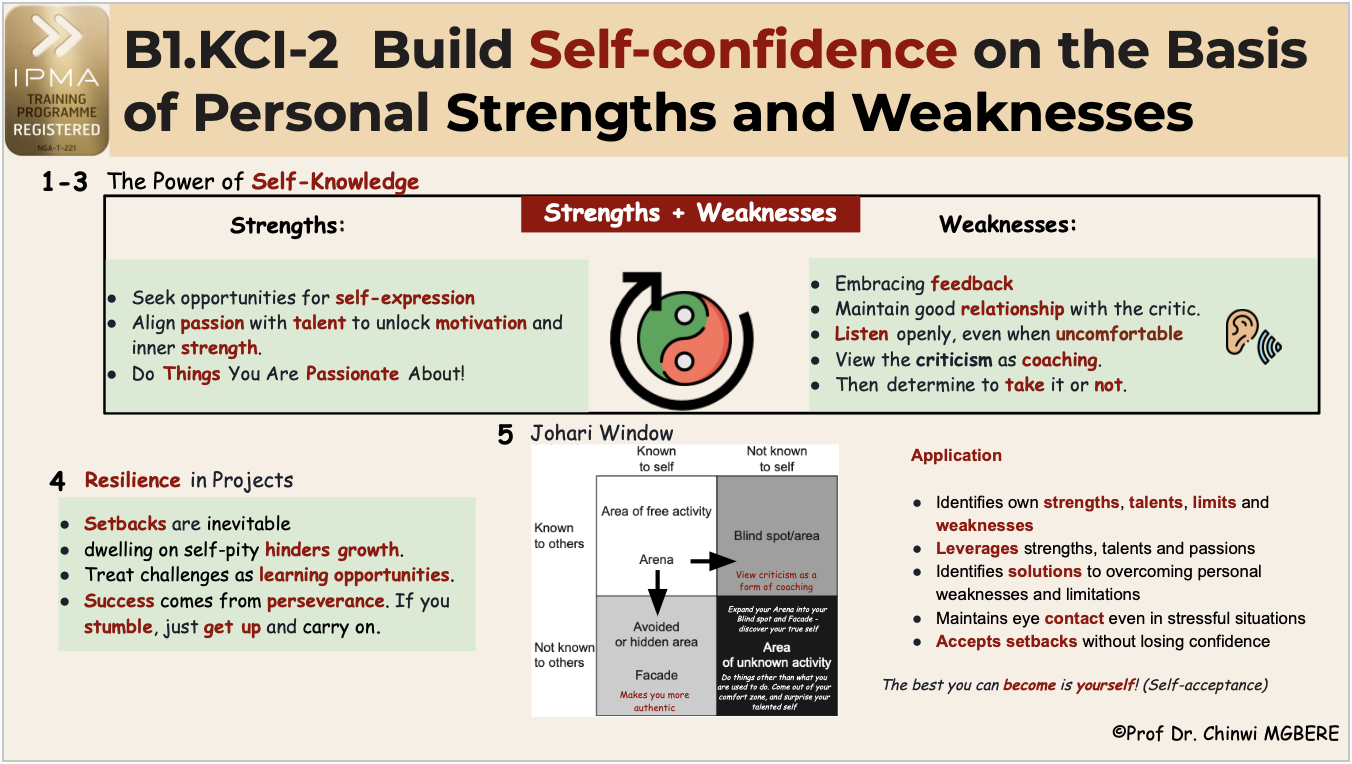

45min.

B1.KCI-2. Develop self-confidence from your own strong and weak points
1. The best we can become is ourselves! The acquired self-knowledge is the first step in the process of self-acceptance. When we accept who we are, we develop faster because we know what we are good at and where our talents lie. We can now look for the situations in which we can fully develop. The feeling of competence motivates us, and we often see that we are good at things we are passionate about. Talent and passion reinforce each other, allowing us to find our inner strength and power.
2. There is a reverse side because, as well as strong points, there are also weak points. Self-knowledge means that we also recognise our weaknesses, ensuring we remain modest. If we think we are the best in everything, it is difficult to delegate tasks, and we become overly busy. The strength of a team is that everyone is good at something, and the composition of a team means that the whole has significantly more talent than one single person. Anyway, it is not feasible to do all the work by yourself. If you realise this and handle it accordingly, then you have understood what one of the essences of working on the project is all about.
3. The next step is recognising our weak points. Listen carefully to what others say to us, and be open to criticism. Reflect on how we can effectively handle this. It is never nice when someone criticises us, but we must ensure we keep in contact with the person in question. Depending on the culture, we may either look the other person in the eye or not. In some cultures, eye contact is a sign of self-confidence and sincerity, but this is not the case everywhere. Listen attentively and view the criticism as a form of coaching. We can then determine whether or not we can do something with it.
4. Disappointments are inevitable and demotivating. A project is everything but routine, and many things that happen are unpredictable. When we have a setback, it is logical that we sometimes lose our self-confidence. If it happens once or twice, it is not so bad, but be aware not to remain in a self-pitying mood for too long. Just as with criticism, try to view setbacks as something you can learn from. Professionally developing ourselves means that we accept whatever crosses our path, and if we stumble, we just get up and carry on further. The more experience we build up, the more we notice that, in most cases, it ultimately turns out right. Professional development is primarily a case of perseverance.
KCI application
You can convert the above into actions on the project/programme/portfolio for which you are currently responsible, by carrying out the following steps:
· Recognise your strengths, talent, boundaries and weaknesses.
· Use your strength, talent and passion.
· Find solutions to your weaknesses and boundaries.
· Remain in contact during times of tension.
· Accept setbacks without losing your self-confidence.
Access is required to view content